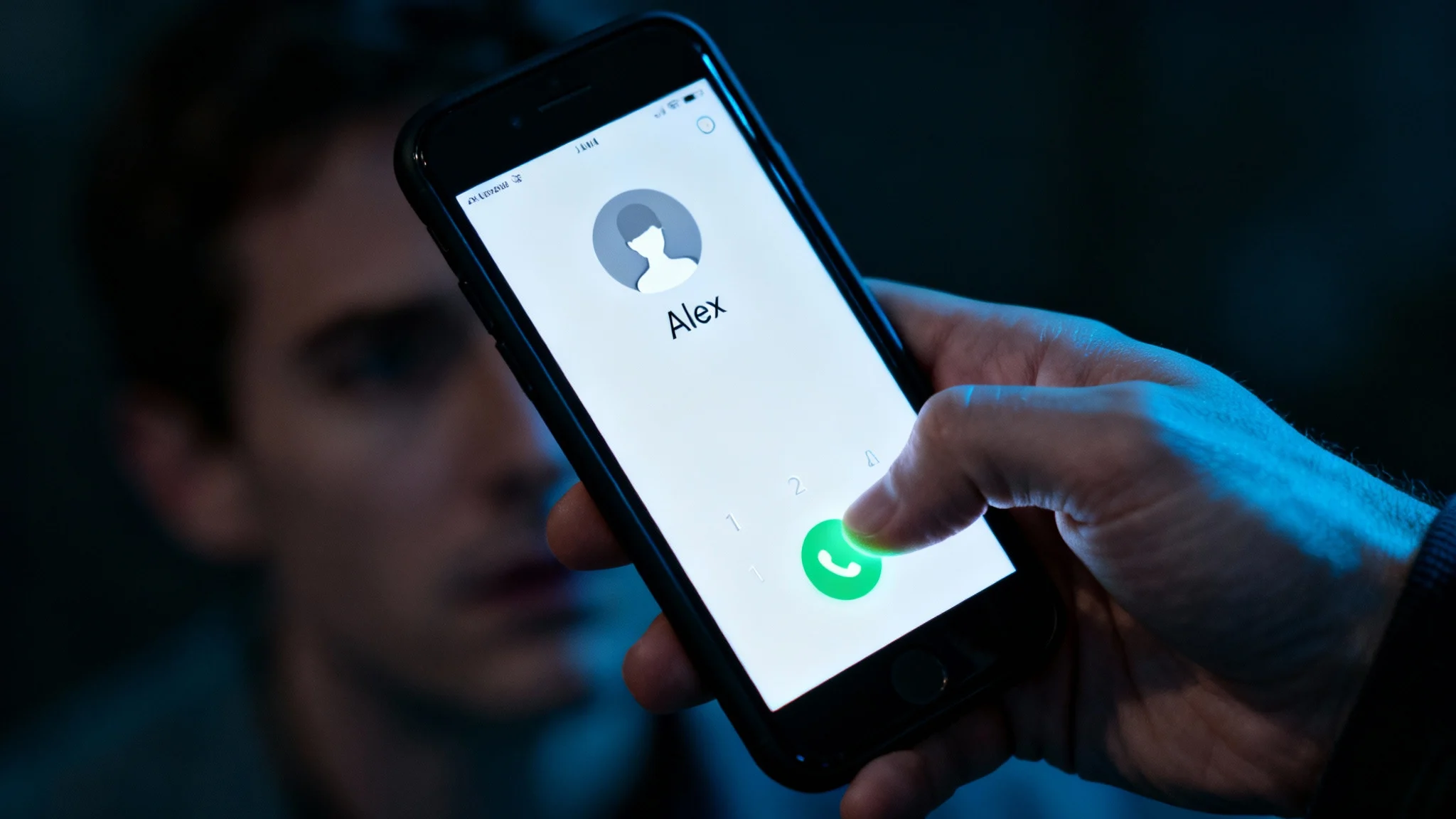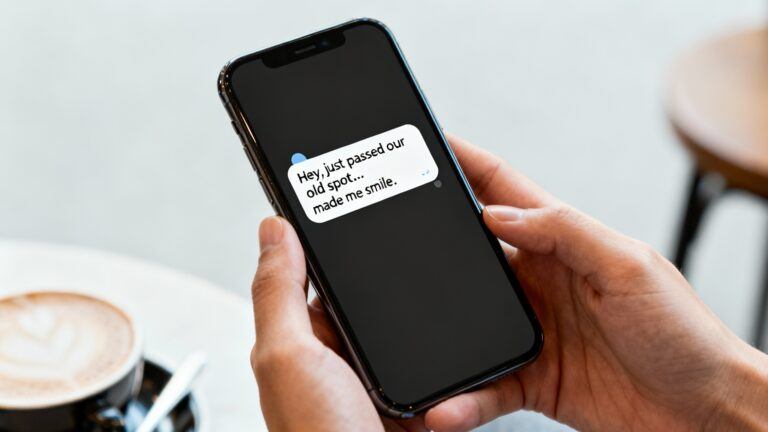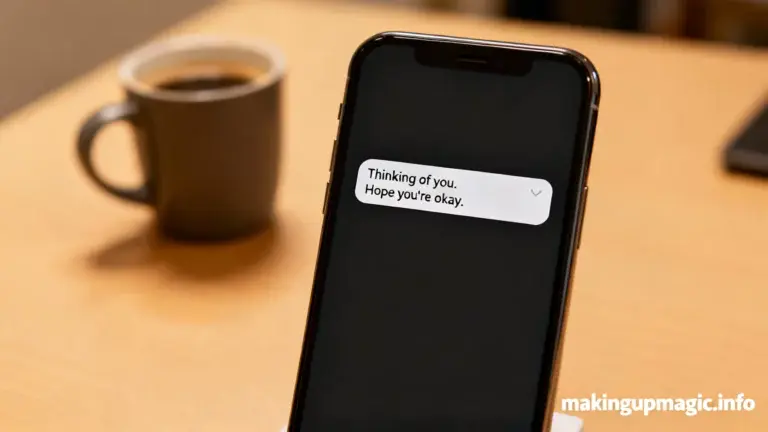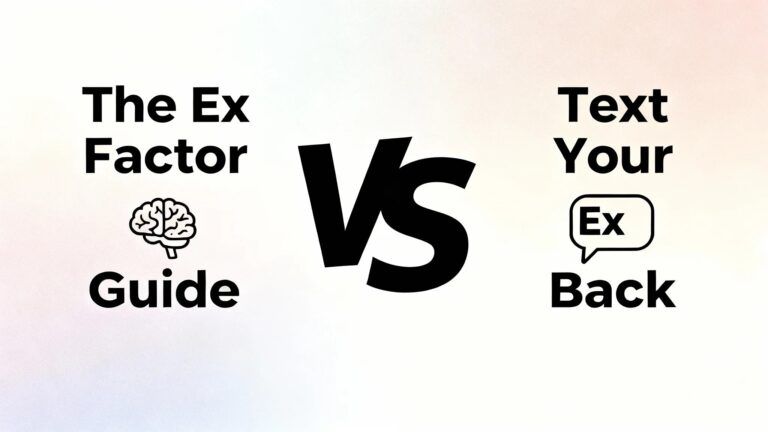The phone feels like it weighs a thousand pounds. Your thumb is hovering over the call button, and you can feel your heart pounding in your chest. A voice in your head is screaming, “DO IT! What if this is your only chance?” while another, quieter voice is whispering, “This is a terrible, terrible idea.”
I know that internal battle. It’s a moment filled with a terrifying mix of hope and fear. You want to break the silence, but you’re petrified of the rejection, the awkwardness, or worse—the indifference.
This guide isn’t going to give you a simple yes or no. It’s going to give you something much better: a framework for clarity. By the end of this, you won’t need me to tell you what to do. You’ll have the confidence to make the right decision for *you*, free from anxiety and desperation.
Before you even think about dialing, you need to be brutally honest with yourself. Go through this checklist. If you can’t say a confident “yes” to all five points, you are not ready. Put the phone down.
The 5-Point “Ready to Call” Checklist
Be honest. This isn’t about what you want to be true; it’s about what is true right now. You must meet all five of these conditions.
1. Have You “Won” No Contact?
Winning No Contact has nothing to do with your ex. It has everything to do with you. You’ve won when you have genuinely reached a place of acceptance. You are okay—truly okay—if they don’t answer. You’re okay if they’re cold or tell you not to call again. If the outcome of this call has the power to shatter your emotional progress, you haven’t won yet, and you are not ready to call.
2. Do You Have a Clear, Low-Pressure Reason for Calling?
“I miss you” or “I just wanted to talk” are not good reasons. They are loaded with pressure and expectation. A good reason is logistical or circumstantial. Examples: “Hey, I was going through my old books and found that one you lent me, where should I send it?” or “I was talking to my mom and she asked how you were, it just made me think of you for a second.” It gives you a natural entry and exit point without demanding an emotional response.
3. Are You Prepared for All Three Outcomes?
You must mentally walk through and accept all three possibilities:
- The Bad: They don’t answer, hang up, or are cold and hostile. You must be prepared to handle this rejection with grace and not let it derail you.
- The Neutral: The conversation is short, awkward, and purely logistical. You must be prepared for it to go nowhere.
- The Good: They are warm, receptive, and happy to hear from you. You must be prepared to not get overly excited and push for too much, too soon.
4. Have You Practiced What You’ll Say?
This isn’t about having a script. It’s about having a plan. Know your opening line. Know your reason for calling. Most importantly, know your exit line. Having a pre-planned “out” (e.g., “Anyway, I’m about to head into a meeting, but I just wanted to ask that quickly…”) prevents the call from dragging into awkward silence and ensures you are the one to end it.
5. Is a Call Genuinely Better Than a Text?
A text is almost always the smarter first move. It’s lower pressure and gives your ex time to formulate a response without being put on the spot. A call is a high-impact move that should only be used when you have a legitimate, time-sensitive reason, or when you’ve already re-established some warm communication via text and are ready to escalate.
The Psychology of a Call vs. a Text
Understanding the difference in impact is crucial. A text is a low-investment feeler. A call is a high-investment power move.
A call communicates a level of confidence that a text never can. Hearing your voice—calm, confident, and happy—can instantly re-establish a connection and rebuild attraction. However, it also carries a much higher risk of immediate, visceral rejection. There’s no hiding behind a screen.
Think of the Parable of the Bridge. After a storm washes out the bridge between two towns, communication stops. Sending a text is like tying a note to a paper boat and sending it across the river. It’s a low-risk way to see if anyone on the other side is even looking. Making a call is like walking confidently out to the middle of the newly rebuilt bridge. It shows courage and intent, but you’re also exposed. You must be prepared to stand there alone for a moment, and be willing to turn back gracefully if no one comes out to meet you.
The “Golden Rules” of the First Call
If you’ve passed the 5-point checklist and decide to make the call, follow these rules without exception:
- Keep it Short: Aim for 5-10 minutes, maximum. This is not the time to rehash the relationship.
- Keep it Positive: Your tone should be light, friendly, and positive. Do not bring up the breakup or any negative emotions.
- You End the Call First: This is non-negotiable. Ending the call while the conversation is still good leaves them wanting more. Use your pre-planned exit line.
- Smile While You Talk: It sounds cliché, but they can literally hear a smile in your voice. It changes your tone and projects warmth and confidence.
Still Unsure If It’s the Right Move?
This is a big decision, and timing is everything. If you’re still wrestling with the ‘what ifs,’ a little objective clarity can make all the difference.
Take our free 60-second Breakup Clarity Quiz. It will analyze your specific situation and give you a personalized recommendation on whether calling, texting, or waiting is your smartest next step.
Frequently Asked Questions
Q: What if my ex doesn’t answer the phone?
A: Do not leave a voicemail and do not immediately text them asking why they didn’t answer. Do nothing. The ball is in their court. By not reacting, you show you are not desperate for their response. If they are interested, they will either call back or text you.
Q: Is it better to call on a weekday or weekend?
A: Generally, a weekday evening (like a Tuesday or Wednesday night) is best. It implies you’re busy with your own social life on the weekends. Avoid calling late at night or during work hours. A call around 7-8 PM is often a safe bet.
Q: What if I start to get nervous and stumble over my words?
A: It’s okay to be a little nervous. If you feel yourself losing composure, just use your exit line. It’s better to end the call on a high note than to let it devolve into awkwardness. Simply say, “Hey, I’m actually about to run, but it was great to hear your voice! Talk soon.”
Q: Should I call my ex on their birthday or a holiday?
A: It’s generally better to avoid this for a first call. A birthday call can feel obligatory and doesn’t give you a clear read on their interest. A simple, warm “Happy Birthday!” text is a much safer and lower-pressure option.







